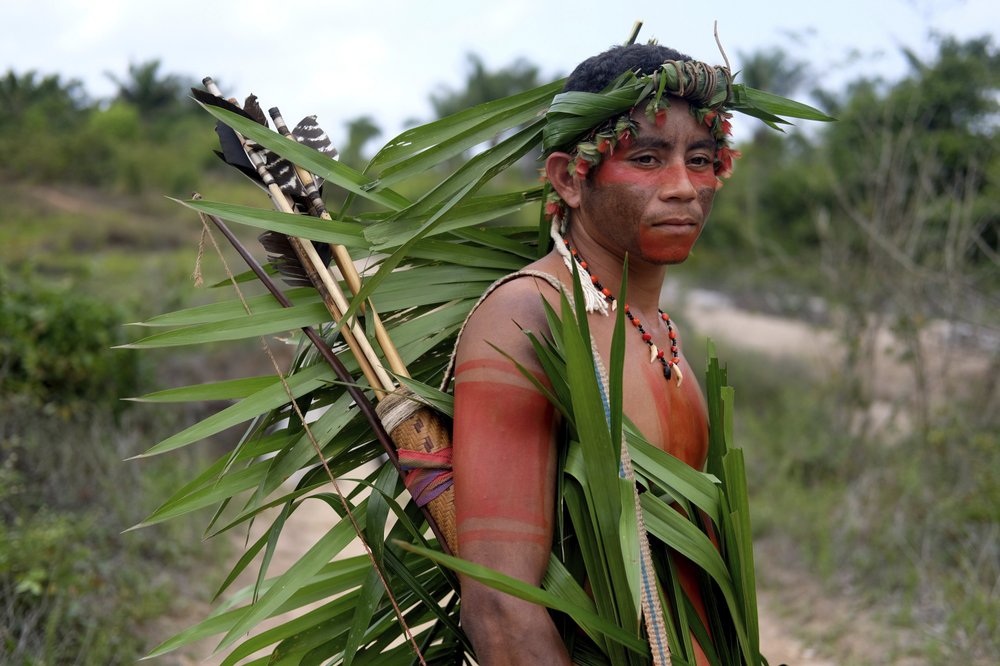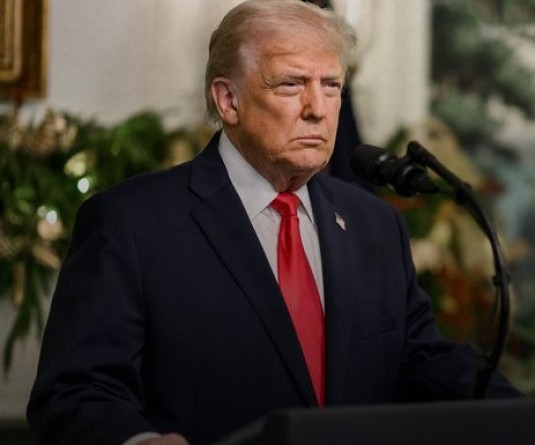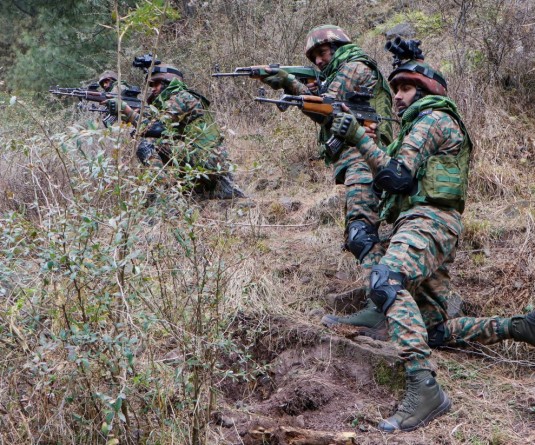Amazon tribe in Brazil patrols territory, braces for fight

Indigenous Tembe warrior Ronilson Tembe poses for a portrait on the Alto Rio Guama indigenous reserve as he waits for police to arrive with other members of his tribe in Para state, Brazil, Wednesday, Sept. 4, 2019. Tembe men sometimes daub themselves in traditional war paint and patrol the forest. They carry bows and arrows, but feel increasingly vulnerable as they brace for run-ins with illegal loggers. (AP Photo/Luis Andres Henao)
ALTO RIO GUAMA INDIGENOUS RESERVE, Brazil, September 18 (AP) — Deep in the Amazon rainforest, there is talk of a looming conflict over land.
The men in the Tembe indigenous group sometimes daub themselves in traditional war paint and patrol the forest. They carry bows and arrows, but feel increasingly vulnerable as they brace for run-ins with illegal loggers.
Tension over territory reached a new height after a surge in annual fires, usually set to clear land, devastated large areas of the Brazil’s Amazon region in past weeks. Some indigenous people who live in the Amazon say deforestation is encroaching on their lands and way of life.
The problem is old — and escalating. On Aug. 27, Tembe people who had repeatedly warned loggers to stay out of their reserve took action.
On a forest trek, men from the Tekohaw village spotted loggers using chain saws, trucks and tractors to cut down and haul trees. The indigenous warriors recorded video. Then they intervened, letting the loggers flee before burning their machinery.
“We destroyed their machinery because they have been destroying our lives for a long time. Our life is the forest,” said Ronilson Tembé. On a recent jungle patrol, he was camouflaged from head to foot with leaves and carried a large red horn to summon companions.
The Tembe are proud of their triumph, but worry about retaliation. Police are monitoring makeshift sawmills around their land after the Tekohaw village chieftain filed reports of death threats.
“Every day that passes, the invasion comes closer to our village,” said the chieftain, Sergio Muxi Tembé. He wore a colorful headdress of macaw and other feathers and a traditional bone bracelet on his wrist, next to a Casio digital watch.
“We don’t want to be killed by bullets,” he said. “We want the federal government to assume its responsibility and guarantee the right that we have to live in our lands, to live in peace.”
Their 1,080-square-mile (2,766-square-kilometer) Alto Rio Guama homeland is officially protected. But in reality, it’s under siege by loggers who try to extract prized hardwood in a Brazilian state that is one of the Amazon’s largest producers and exporters of timber.
Like other Amazon states, Para has also been hit by thousands of fires that have intensified international concern about the world’s largest rainforest, considered a vital bulwark against climate change.
An Associated Press team traveled for days in the Amazon to document the fires and deforestation on the remote indigenous reserve, which can only be reached by river or on rough roads.
On a recent day, a boa constrictor slithered in the sun on a red dirt road leading to Tekohaw, where about 600 members of the tribe live on the banks of the Gurupí River. Their life mixes tradition and modernity. Villagers fish for piranhas, hunt for birds, and pick fruits and take materials for traditional medicine from jungle trees, while some watch television or log on to the internet on phones inside thatched-roof huts.
Like elsewhere in Brazil, stricter enforcement of environmental laws between 2004 and 2014 sharply curbed deforestation in the Amazon. The rate began climbing after that, and ramped up further as the fires escalated in early August, according to Brazilian state monitors.
Amid an international outcry, Brazilian President Jair Bolsonaro sent the military to help battle some fires and banned most legal fires for land-clearing in the Amazon for 60 days.
However, he had previously promised to loosen protections for indigenous lands as a way to develop Brazil’s economy, a pledge that critics say has stoked clashes.
Bolsonaro believes past allocations of land to indigenous people were excessive. About 14% of Brazil is indigenous territory, a huge area for a relatively small population, according to the president.
Brazil’s foreign minister, Ernesto Araujo, said in Washington last week that the opening of the Amazon to development is “the only way to protect the forest.”
One expert on Brazil said the plight of the Tembe people is the direct outcome of government policy.
“This leads to a situation where the lawlessness of the Amazon region ... becomes such that the livelihood of the indigenous people is under a real threat. And they don’t have a lot of capacity to defend themselves,” said Monica de Bolle, a Brazil expert at the Peterson Institute for International Economics.
“These are the people who live off the land, who do substance farming. They are very much aware of the environment around it and how to maintain it because that’s how they sustain their livelihood,” said de Bolle, who recently testified before U.S. Congress about the Amazon.
Human Rights Watch said in a report released this week that deforestation in the Amazon “is driven largely by criminal networks that use violence and intimidation against those who try to stop them.” It blamed Brazil’s government for failing to protect the rainforest and people trying to protect it.
Those networks can “coordinate large-scale extraction, processing, and sale of timber, while deploying armed men to intimidate and, in some cases, kill those who seek to defend the forest,” Human Rights Watch said. It based its report on interviews with indigenous people and others in the Brazilian states of Para, Maranhao and Rondonia.
In Brazil’s Congress, lawmaker Edmilson Rodrigo from Para state made a call to defend the Amazon’s indigenous people, including the Tembe.
“Land grabbers, miners, loggers have taken their lands and they’ve reacted by trying to protect it,” he said.
Women of the Tembe tribe said their men will suffer casualties if they get into a fight with loggers likely to have firearms. They hope an international donor can provide the men with bulletproof vests.
“Our husbands go to look out after our lands, and this is our only weapon,” said Anailde Tembe, the chieftain’s wife. She lifted a bow and a sheaf of feathered arrows.






